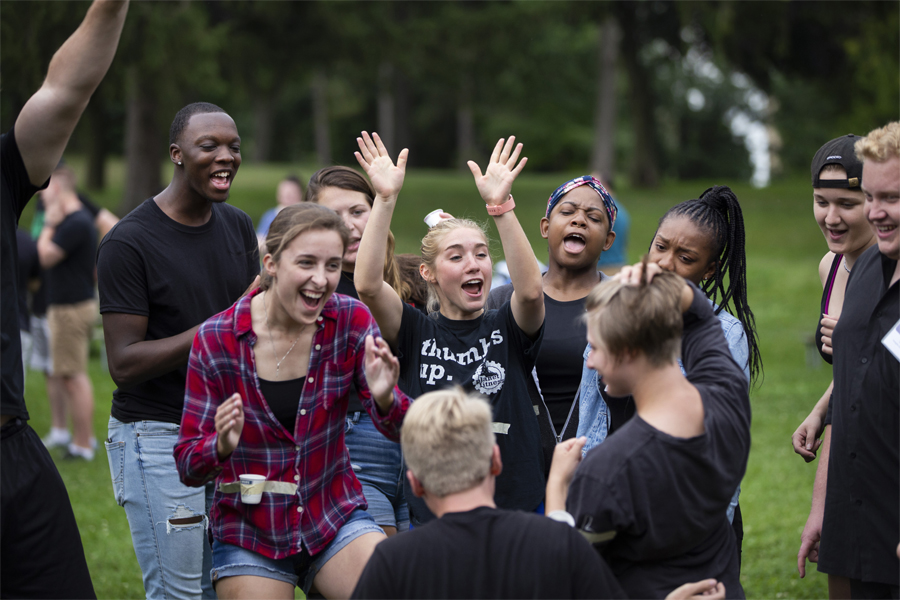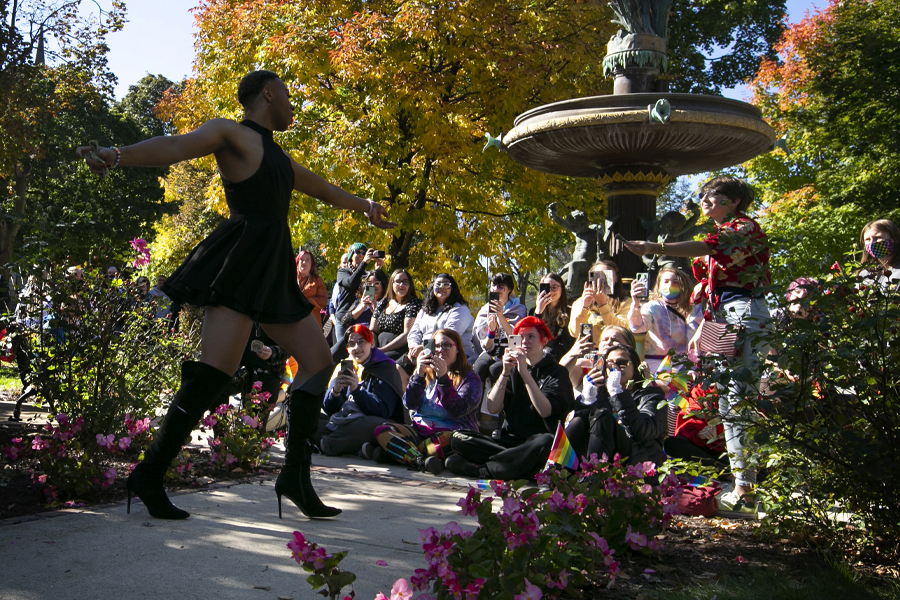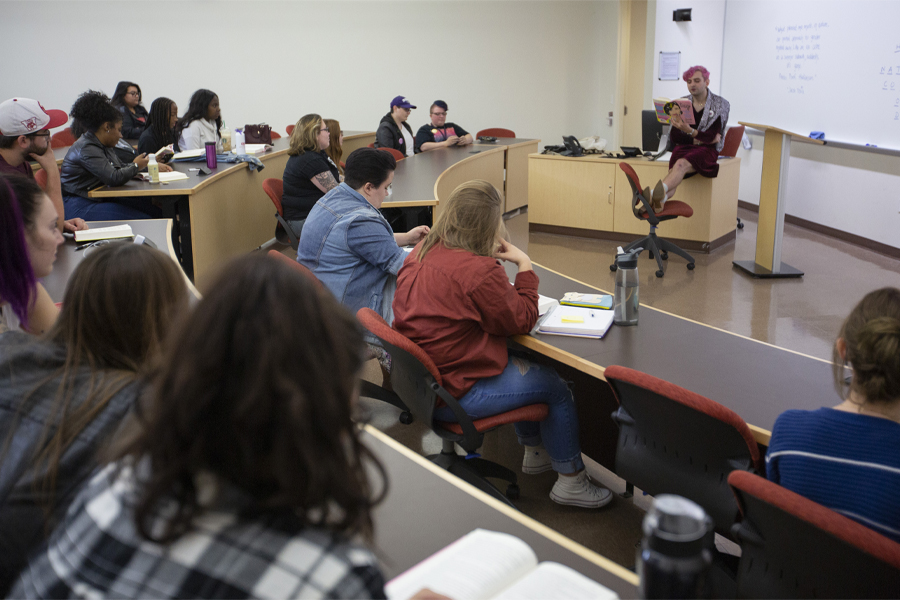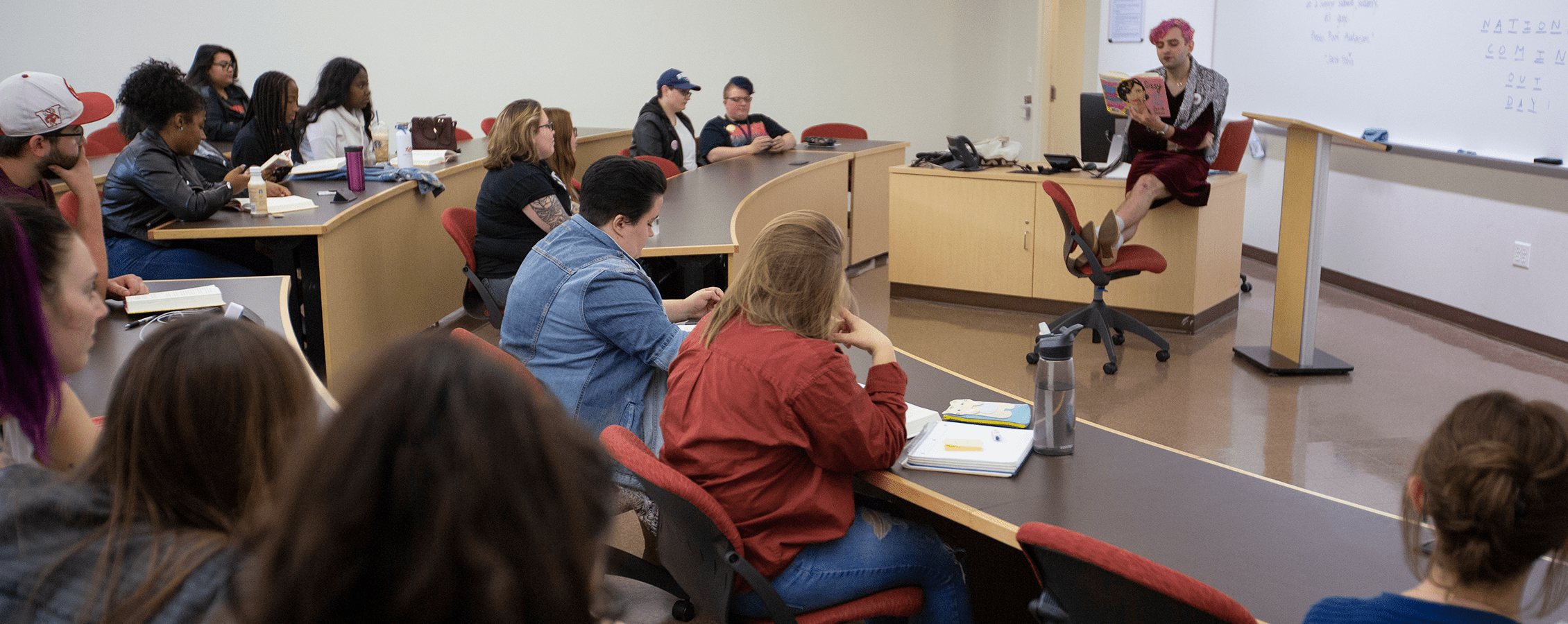DEPARTMENT OF WOMEN'S AND GENDER STUDIES
Women’s and Gender Studies is an interdisciplinary field where we study and question how gender and sexuality intersect with race, class, ability, and other identities to shape everyday lives, institutions, and global communities. Through a dynamic combination of coursework, internship opportunities, and community engagement, we empower students to become engaged and self-reflective agents of social justice. This field of study provides a variety of important skill sets and career opportunities, ranging from intercultural competence to dynamic critical thinking. Whether you take one class or choose a major, Women’s and Gender Studies will transform your perspective, turning you into a life-long learner with extensive experience in complex problem solving and analytical thinking.
The Department of Women’s and Gender Studies offers a major, minor, and 3 different certificate options: Women’s and Gender Studies Certificate, LGBTQ* Studies Certificate, and Diversity Leadership Certificate.
As an interdisciplinary and global field informed by the arts, humanities, social sciences and natural sciences, Women’s and Gender Studies faculty bring expert knowledges to a wide range of social problems, situations and contexts. The Women’s and Gender Studies department works to support diversity efforts on campus, increase diversity awareness, and transform social and institutional practices well beyond its contributions to its own academic programs.
Contact us
Crista Lebens
She/her/hers
Department Chair and Professor
262-472-5269
Laurentide Hall 4221
Jeanne Quevedo
She/Her/Hers
Department Assistant
262-472-1042
Laurentide Hall 4205
UW-Whitewater offers students a wide variety of scholarships, both through the university, individual colleges, and departments. The Department of Women's and Gender Studies has a number of scholarships and awards geared specifically toward our students, including:
- Edie Thornton Scholarship
- Dr. Ernella Hunziker Scholarship
- Tom Affholder LGBT Leadership Award
- Gender and LGBTQ Studies Scholarship
More information about these and other scholarships is available through the scholarship portal.
The Department of Women's and Gender Studies supports a number of student clubs and organizations, including Students Allied for a Green Earth (SAGE), IMPACT, CASIV, and Active Minds.
Explore our academic programs



Diversity Leadership
Certificate (Undergraduate)The Diversity Leadership Certificate provides excellent preparation for living and working in a diverse society! Students engage in cross-disciplinary, in-depth diversity learning around issues of gender, race, ethnicity, class, sexuality and ability.
LGBTQ Studies
Certificate (Undergraduate)The LGBTQ Studies certificate program is intended for students who would benefit from a thorough introduction to LGBTQ Studies from various disciplinary perspectives.
Women's and Gender Studies
Major/Emphasis, Minor, Certificate (Undergraduate)Understand how gender and sexuality intersect with race, class, ability and other identities to shape people’s everyday lives, institutions and global communities. The Women's and Gender Studies program works to help bridge differences and empower students to become self-reflective agents of social justice.
What does my contribution directly support?
How much money can make an impact?
Donate now to support the Department of Women's and Gender Studies at UW-Whitewater
If you're interested in starting a scholarship or making a pledge, please contact the UW-Whitewater Foundation, Inc at 262-472-1105 or through email at foundation@uww.edu.

